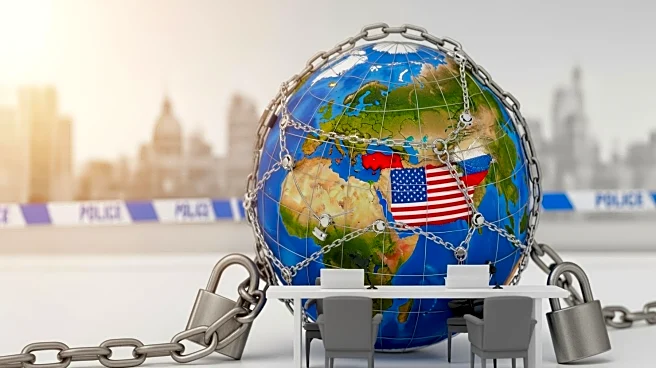What's Happening?
The European Union has joined the U.S. in imposing sanctions on Russia's energy sector, targeting liquefied natural gas imports and major oil companies. The sanctions aim to deprive Russia of the financial
means to continue its military operations in Ukraine. The EU's high representative for foreign affairs, Kaja Kallas, has welcomed the U.S. measures as a signal of strength. The coordinated sanctions reflect a unified international effort to pressure Russia into ending the conflict.
Why It's Important?
The coordinated sanctions by the EU and U.S. represent a significant escalation in efforts to isolate Russia economically. By targeting the energy sector, these measures aim to weaken Russia's financial foundation and force a reconsideration of its military strategy. The sanctions could lead to shifts in global energy markets and impact countries reliant on Russian oil and gas.
What's Next?
The sanctions are expected to take effect soon, with potential diplomatic negotiations anticipated. The international community will be monitoring Russia's response and any changes in its approach to the Ukraine conflict. The situation may lead to increased energy prices and affect global supply chains.
Beyond the Headlines
The sanctions highlight the role of economic measures in international diplomacy and the challenges of achieving political goals through financial pressure. The situation underscores the strategic importance of energy resources and the potential for economic actions to influence geopolitical outcomes.










